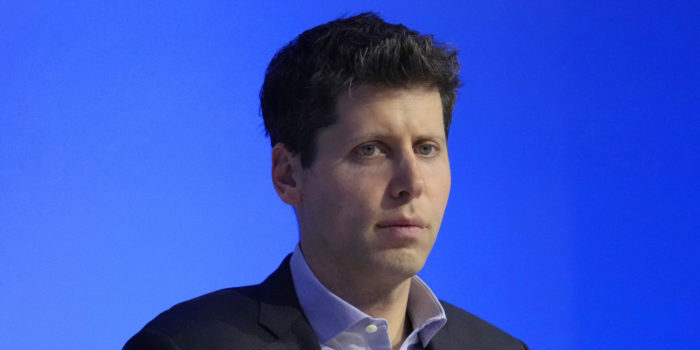(José Niño, Headline USA) Tucker Carlson pressed OpenAI CEO Sam Altman on the suspicious death of OpenAI researcher Suchir Balaji, reviving claims of foul play that now grip Silicon Valley.
The confrontation that took place on Wednesday centered on Suchir Balaji, a 26-year-old AI researcher who worked at OpenAI for four years before becoming a vocal critic of the company’s practices.
Balaji died in November 2024 from what San Francisco authorities ruled a suicide, but his mother Poornima Ramarao maintains he was murdered, according to a report by Newsweek.
Carlson opened the interview with a direct challenge. “You had complaints from one programmer who said you guys were basically stealing people’s stuff and not paying them, and then he wound up murdered. What was that?”
🚨This Exchange Between Tucker Carlson & Sam Altman Is INSANE!
This was so awkward and revealing, the OpenAI employee who turned whistleblower was 100% murdered. Sam Altman's body language and illogical responses tell us everything we need to know. pic.twitter.com/jAON2EIKC7
— Jay Anderson (@TheProjectUnity) September 11, 2025
When Altman responded that Balaji committed suicide and described him as “like a friend of mine,” Carlson pressed harder. “No, he was definitely murdered,” Carlson insisted, citing what he called evidence of foul play.
The exchange reached its most uncomfortable moment when Carlson alleged that Balaji’s mother “believes he was murdered on your orders.” Altman appeared visibly shaken, responding, “I haven’t done too many interviews where I have been accused of murder.”
Carlson detailed several factors he claimed pointed to murder rather than suicide. “There was signs of a struggle. Of course, the surveillance camera wires had been cut. He had just ordered takeout food, come back from vacation with his friends on Catalina Island,” Carlson said.
The host questioned the official narrative further, asking, “How did he wind up bleeding in two rooms after shooting himself? And why was there a wig in the room that wasn’t his?” Carlson also noted that Balaji had “just spoken to a family member on the phone” before his death and showed “no indication at all that he was suicidal.”
Altman maintained his belief in the suicide ruling, explaining that initial reports made him suspicious but later evidence changed his mind. “After the first set of information that came out, I was really like, man, this doesn’t look like a suicide. I’m confused. But then after the second thing came out and the more detail, I was like, oh, okay,” Altman said.
He specifically cited “the second report on the way the bullet entered him and the sort of likely path of things through the room” as convincing evidence supporting suicide.
Before his death, Balaji had become a prominent critic of OpenAI’s practices. In October 2024, he told the New York Times that OpenAI’s use of copyrighted material to train ChatGPT violated federal copyright laws. Balaji argued that AI systems like ChatGPT were “damaging the Internet” by undermining content creators’ commercial viability.
His death occurred just days before he was scheduled to serve as a potential witness in The New York Times’ copyright lawsuit against OpenAI. Court documents had identified him as having “unique and relevant documents” that could support the case against the company.
The San Francisco Medical Examiner’s Office ruled Balaji’s death a suicide, finding no evidence of foul play. The autopsy revealed he died from a self-inflicted gunshot wound using a legally purchased firearm. Officials claimed his blood alcohol level was 0.178 percent and that his apartment was dead-bolted from inside with no signs of forced entry, according to a report by The San Francisco Board.
Despite these findings, Balaji’s parents hired private investigators and conducted a second autopsy. His mother, Poornima Ramarao, appeared on Carlson’s show in January, claiming OpenAI “attacked Balaji and killed him.”
José Niño is the deputy editor of Headline USA. Follow him at x.com/JoseAlNino

